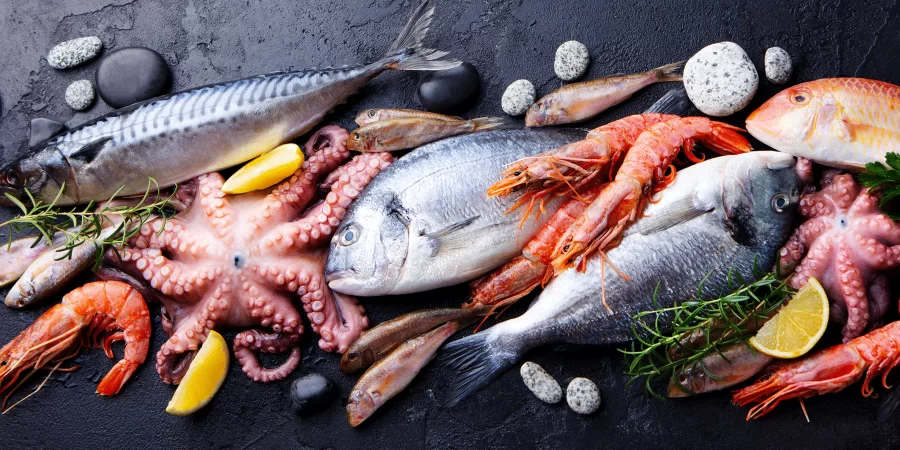Seafood: A Healthy and Sustainable Choice for People and Planet
April 10, 2023
Seafood is not only delicious but also nutritious. It provides high-quality protein, omega-3 fatty acids, vitamins, and minerals essential for human health. Studies have shown that eating seafood regularly can help prevent or treat various chronic diseases, such as cardiovascular disease, diabetes, obesity, depression, and cognitive decline.
One key nutrient found in seafood is docosahexaenoic acid (DHA), a type of omega-3 essential for brain development and function. Our daily food choices influence our mental health as much as other self-care such as physical activity, connecting with friends and family, and sleep.
Seafood is not only good for us, but it’s also good for the planet. Seafood has a much lower environmental impact than land-based animal protein sources, such as beef, pork, or chicken. Seafood requires less land, water, and energy to produce, emitting fewer greenhouse gases and contributing to climate change.
Scientists have suggested that replacing land-based animal protein with seafood could help improve global health and nutrition while reducing carbon emissions and stabilizing Earth’s climate. This would also help preserve biodiversity and wildlife habitats that are threatened by deforestation and overgrazing.
Hamza Wattoo, an 11th-grade North Hollywood student said “ I don’t like seafood at all, I am never eating that kind of food.”
However, not all seafood is equally sustainable. Some fishing methods can cause overfishing, bycatch, or habitat damage. Some aquaculture practices can cause pollution, disease, or genetic contamination. Therefore, consumers need to be informed and selective when choosing seafood products.
The seafood industry in United Nations Food and Agricultural Organization estimates that 85% of marine fish stocks are either fully exploited or overfished. Similarly, many fisheries worldwide throw away more fish than they keep.

Fortunately, there are many tools and resources available to help consumers make smart seafood choices. For example,
The Marine Stewardship Council (MSC) certifies wild-caught seafood products that meet rigorous standards for sustainability and traceability.
The Aquaculture Stewardship Council (ASC) certifies farmed seafood products that meet similar standards for environmental and social responsibility.
The Monterey Bay Aquarium’s Seafood Watch program provides recommendations on which seafood items to buy or avoid based on their environmental impact.
This is what North Hollywood High School students think based on the information.
Noel Hernandez an 11th North Hollywood High School student said “I’m planning to move to a pescatarian diet where you only eat green and seafood cause seafood tastes good and it’s good for the environment ”
Eduardo Mendoza, an 11th-grade North Hollywood student said “ I’m not the biggest seafood fan but I’d eat more of it if it’s good for the environment.”
Edwin Diaz, an 11th-grade North Hollywood student said “ I love seafood, I knew that it was good for your health but I didn’t think it was good for the environment too.”
By choosing sustainable seafood products from certified sources or trusted recommendations, consumers can enjoy the health benefits of seafood while supporting the conservation of marine resources. Seafood is a healthy and sustainable choice for people and the planet. Let’s eat more of it!

